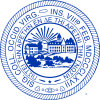MEET THE GRADUATES: First-generation medical student returns home to give back to the community
(Editor’s Note: As Commencement nears, WVU Today will occasionally feature some of the University’s most dedicated graduates. Here is the story of one of those outstanding students.)

From the time she was 3 years old, first-generation college student Joanna Adkins has wanted to be a doctor.
After eight years at West Virginia University, she will graduate from medical school on Saturday (May 14) and plans to complete a family medicine residency at WVU, then return to Wyoming County as a family doctor to give back to her community.
“There are about six doctors in my home county, and four of them are over the age of 60,” Adkins said. “There’s a definite need down there for more doctors. I knew that I wanted to go back to the southern part of the state to practice. Family medicine made the most sense to me because it gives me a wide range of people that I can help.”
To see live webcasts of each commencement ceremony, go to http://commencement.wvu.edu/webcasts
To read about other outstanding students who are graduating this May, go to Meet the Graduates.
Adkins, a West Virginia Family Medicine Rural Scholar and recipient of the WVU Presidential and McGinn scholarships, said her experience in medical school – especially with being a first-generation student – was different than that of her peers. Her first year was the most stressful.
“A lot of my classmates came from families with physicians, their parents have been physicians, or their aunts and uncles,” Adkins said. “My family was supportive, but I didn’t have family members that could relate to what I was going through.”
The most rewarding experiences Adkins had in school were related to her volunteer work with a program called MUSHROOM (Multidisciplinary Unsheltered Homeless Relief Outreach of Morgantown). The program pairs students with physicians to go identify homeless patients along the rail trail in Morgantown.
“We provide them with simple, basic medical care, first aid, blood pressure screenings, and on occasion we’ve sent people to the hospital,” Adkins said. “We also try to meet their basic prevention needs. We give out socks, underwear, sleeping bags, snow boots, sunscreen, bug spray and more.”
The West Virginia Family Medicine Rural Scholars Program provided Adkins with a $10,000 scholarship and the option to decide her preference for residency in the family medicine department earlier than the other students.
The program has a research component, and is reserved for students who are interested in rural medicine and service of the underserved, Adkins said.
“My project involves a consult service that I started at Ruby Memorial for homeless patients,” Adkins said. “We have a pager that we carry, and if one of the inpatient services has a homeless patient, they’ll let us know so we can visit them during their time in the hospital. We then provide services much like we do in the MUSHROOM program, but we also try to identify how the homelessness is related to their hospitalization. Many of our patients are hospitalized repeatedly simply because they’re homeless.
“They will often end up back in the hospital with the same problems as before. We work with the care management teams and the medical teams to try to improve their health outcomes and minimize the re-admissions. We also serve as a friendly, familiar face to the homeless while they’re in the hospital.”
While in school, Adkins was also able to help those abroad through participation in the Amizade Global Service Learning program. She studied peace and reconciliation in Northern Ireland.
“The area was still in recovery from being torn by political conflict during the 1980’s and 90’s. It had just started coming back together, so there were a lot of things moving in the peace process there,” Adkins said. “We studied the dialogue process, where they bring in people from both sides of the conflict and try to link them with common grounds, such as bringing in mothers from either side to talk about the struggles of being a mom.
“We had the opportunity to meet people from around the world who were engaged in the peace process. One Palestinian man gave me a lot of insight about the word ‘terrorist,’ making me realize that essentially one man’s freedom fighter is another man’s terrorist. At the time it was five years after Sept. 11, and that word was being thrown around very loosely. That was one of the most memorable conversations I’ve had in my lifetime.”
Adkins said that the advice she would provide to future first-generation students is not to be afraid to ask for help.
“Use all the resources that WVU has to offer,” Adkins said. “WVU has excellent resources at the Carruth Center and Student Health, and so I say utilize them, and get involved with whatever may interest you outside of schoolwork.”
The thought of finally graduating after eight years of education is “thrilling,” Adkins said.
“I’m so excited for graduation, because now, when I go into a patient room, I always say, ‘Hi, I’m Joanna, a student doctor, and I am working with Dr. so-and-so,’” Adkins said. “I’m just excited to be able to go in and say, ‘Hi, I’m Dr. Adkins.’”
By Mel Moraes
WVU University Relations/News
-WVU-
mm/05/13/11
CONTACT: University Relations/News
304.293.6997
Follow @WVUToday on Twitter.